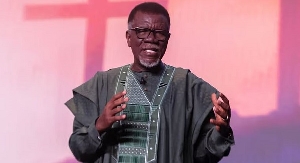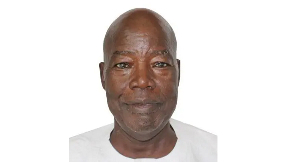By Kwame Okoampa-Ahoofe, Jr., Ph.D.
My State of Maryland-resident good friend - he recently warned me not to mention his name this time around, for he is a realtor who prefers to keep his political affiliation to himself for the sake of his business - called me to ask about my thoughts on former President John Agyekum-Kufuor's use of the compound adjective of "over-clever." The expression was used in the context of a timely warning to recklessly ambitious New Patriotic Party (NPP) candidates intent on cleverly finessing their way into positions of trust for which they may either not be qualified, or may not have legitimately played by the laid-down rules to secure (See "I Won't Support 'Over-Clever' Candidates - Kufuor Warns NPP" MyJoyOnline.com / Ghanaweb.com 1/1/14).
My terse response to the caller was that while, indeed, the expression was not in common use - the more commonly used version being "overly-clever" - nevertheless, I believed that the former president was both poignant and spot-on opportune in the thrust of his warning. In the past, the Oxbridge-educated lawyer and economist had used the more locally colorful expression of democratic justice and fair play requiring of the Johnny-Just-Come-Lately(s) to "join the line."
But whether he has also been apt to matching his principles with impartial practices is a different political animal altogether. To be certain, those who claim to have closely followed the former president in practice, during Election 2008, and even before, note that there was a remarkable gap between the two. Whatever the objective reality or unvarnished truth may be, absolutely nobody can legitimately accuse Mr. Kufuor of not having earned his keep. And even as I write (1/2/14), the retired premier continues to be highly regarded both within and without the country.
I also, naturally, consulted the almighty Dictionary.com; and to my pleasant surprise, it clearly appears that both "over-clever" and "overly-clever" have a legitimate grammatical usage in the English language. For the preposition "over" can also be variedly used as an adverb, a noun, an adjective and even as a transitive verb. In other words, using the expression "over-clever" is akin to classifying somebody as a "Black-African." "Black" is an adjective, of course, whereas "African" is an adjectival noun or, in simpler terms, both an adjective and a noun. In essence, Mr. Kufuor used the word "over" as an intensifier to emphasize his pet aversion to "corner-cutting" mischief among a remarkable number of NPP members presently vying for various positions in the party.
Generally speaking, President Kufuor is far more articulate than his most ardent detractors have been willing to acknowledge. Oftentimes, those who fault him, rather gratuitously, for his purportedly infelicitous use of the English language, invariably tend to erroneously equate his "Nkrumah-esque" accent with diction and grammar, or linguistic command. I, of course, find such gross misperception very annoying; for it is pretty much the same prejudice which confronts those of us non-native born academics in the English-speaking Western countries. The fact of the matter, though, is that even among the native speakers of the English language, there are recognizable differences in dialect, diction and pronunciation.
_________________________________________________________
*Kwame Okoampa-Ahoofe, Jr., Ph.D.
Department of English
Nassau Community College of SUNY
Garden City, New York
Jan. 2, 2014
E-mail: okoampaahoofe@optimum.net
###
Opinions of Monday, 6 January 2014
Columnist: Okoampa-Ahoofe, Kwame














